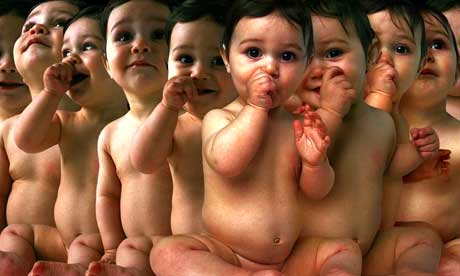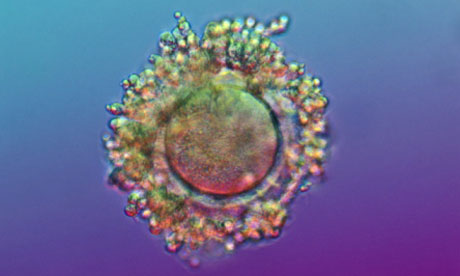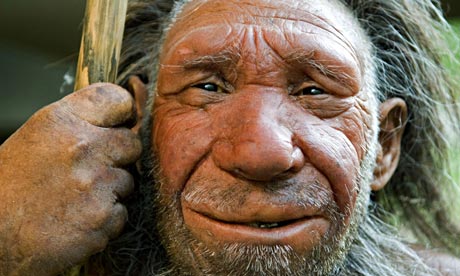
Imagine yourself walking on the street, surrounded by mirrors. You would be seeing myriad of yourself straying alongside and pass you. That may be how the world would be like if cloning is to be successful and legal.

The most renowned successful case of cloning is undoubtedly Dolly the sheep. Born in 1996, Dolly was a shock to the scientific world. However, it raises ethical concerns. Should we be cloning animals?
May it be to bring back the dead to live, to preserve the looks of a being, or for whatever other reasons, cloning is still considered unethical, illegal or both in most countries.

Dr. Panayiotis Zavos had been continuously attempting to clone the first human being, working in a surreptitious lab in the Middle East. Over the past 10 years, he had been implanted numerous embryos into anonymous surrogates, though none of the women had become pregnant or gave birth to any infants. As Sample mentioned in his article, “almost every attempt to clone a new animal species has been married with birth defects or worse.”
Cloning animals could give rise to many other problems too. Debates had been carried out on whether we should clone Neanderthals, or resurrecting mammoth from the ice age. Bringing these back to life may be chaotic and cause disorders in the nature’s ecosystem. The food chain could be stressed and scrambled, with new species being re-introduced. Organisms could become extinct, while many others would have to strive for survival.

If it does happen that we clone the extinct species from their DNA, we have to be responsible for any difficulties caused. It is difficult to map the whole DNA sequence of a species to clone it without any deficiencies especially if no live specimen is present for comparison.
Despite the arguments over cloning an individual, extensive effort had been put into the researches of therapeutic cloning. Therapeutic cloning, also called “embryo cloning” is the use of embryos and stem cells to generate specialized cell in the human body. This technique is still under research for improvements in human development and disease treatment.
When the technology is mastered, whole healthy organs can be produced from a single cell to replace the damaged ones, and treat diseases and disorders that normally require transplants or other complicated procedures.
Nonetheless, cloning still remains as one of the biggest controversies in the society and will carry on regardless of whether the technology of cloning is improving or not.
4 replies on “See Anything Different? Cloning, The Controversy.”
Even when the cloning is successful, there are still some doubts as to how ‘well’ the procedure went. For example, Dolly’s life span was much lower than that of a regular sheep of its species. The age of the donor cells may not have been ‘reset’ during the cloning process and could have led to the clone’s early death.
As for cloning entire humans, it just seems that it’s too much effort and cost to justify the product, regardless of its ethical implications.
I hope that in my lifetime I will NEVER see a cloned human being! If cloning does become legal then I hope they just restrict it for saving lives and thats it. We should have this debate in class – it would be really interesting.
Really good topic!
This has been an really issue I believe. There are many reasons why people agree and disagree on this topic. And very first time I heard this, I was totally lost. I understand both why and why not it should happen. Right now we are testing on animals, and once we are successful with that we will start cloning on people. If I were to say from disagreeing view, it’s a matter of human right and it might seriously ruin, make our lives ‘too simple’; the human life may not be as precious as now since we can just clone one person again, and it would ‘look’ identical.
However, thinking what applications cloning can bring is somewhat useful. People dying from heart disease, nonfunctioning body, and others are waiting for donations. If we can apply cloning to save, it is just great. We can’t just let people die when we can; we can’t just say that humans are born to die.
I am really excited, but also scared about this topic.
I find it interesting when people debate the idea of cloning extinct species and bringing them back to life. As you mentioned this would clearly mess with our already vulnerable ecosystems and in my opinion in most cases there must have been a good reason why the species went extinct and didn’t survive in the first place..